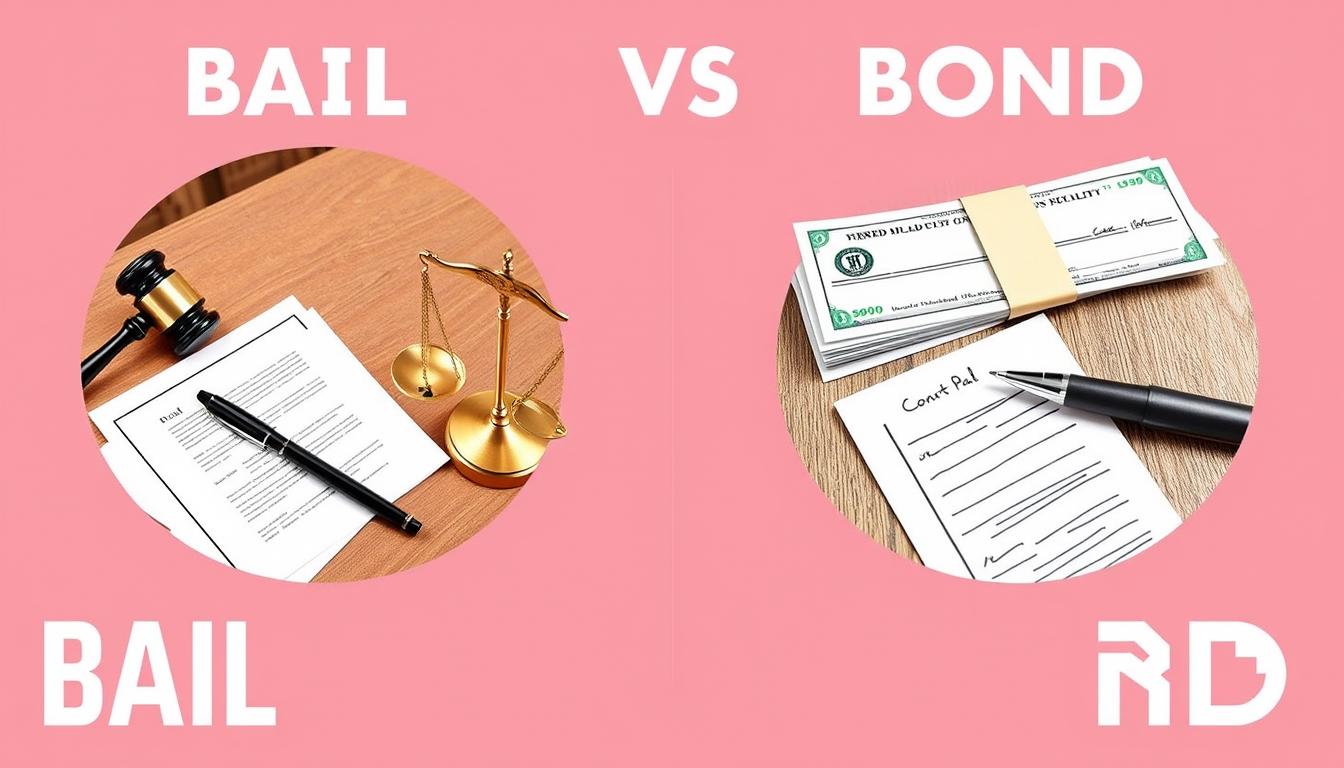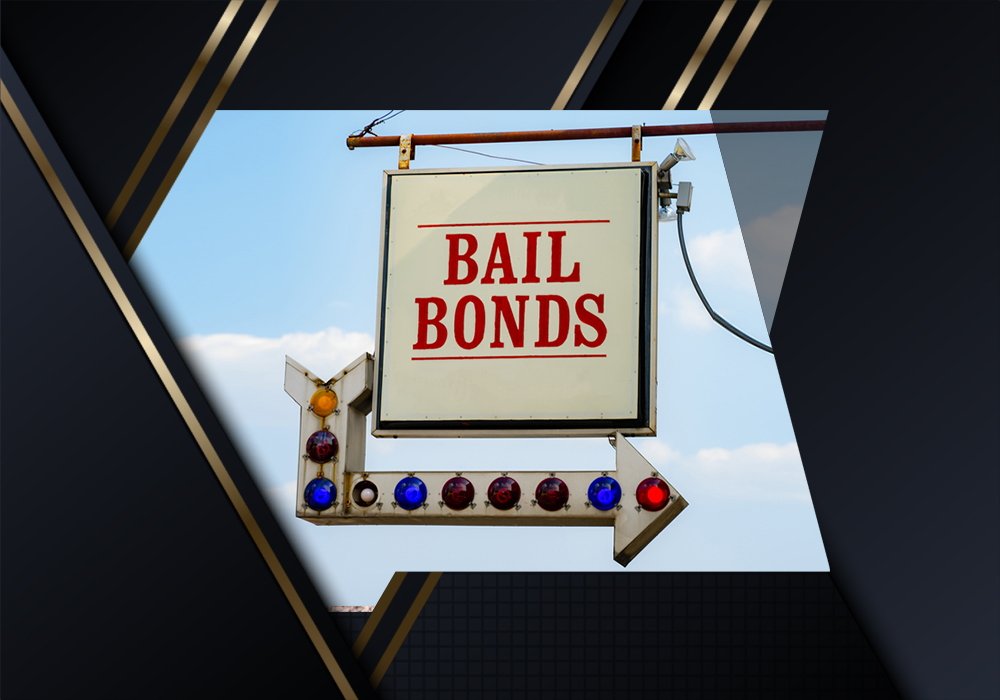Understanding the Process of Securing a Bail Bond: What You Required to Know
Protecting a bail bond can be a complicated process. It involves recognizing different aspects, from the sorts of bonds available to the linked costs. People commonly ignore vital information that can influence their situation. The actions to get a bail bond call for mindful consideration and knowledge of responsibilities. As the procedure unravels, crucial choices have to be made that can influence the end result significantly. What should one prepare for when traversing this tough landscape?
What Is a Bail Bond?
A bail bond is a financial contract that allows a detained person to be released from custody while waiting for trial. This setup entails a 3rd event, generally a Bail bondsman, that ensures the court that the individual will certainly return for their scheduled court appearances. In exchange for this service, the Bail bondsman usually charges a non-refundable cost, commonly a percent of the complete Bail quantity.
Bail bonds offer a crucial feature in the legal system, giving a system for accuseds to keep their freedom during the pre-trial stage. This can aid them prepare for their defense better. The Bail amount is figured out by the court based on various aspects, consisting of the extent of the offense, the defendant's criminal background, and the threat of flight. Inevitably, a bail bond stands for a commitment to support legal obligations while allowing people the possibility to proceed their daily lives up until their court date.
Exactly How Bail Bonds Work
Bail bonds operate through a simple procedure that includes numerous key actions. Originally, a defendant or their depictive calls a bail bond representative after an apprehension. The representative analyzes the situation, including the Bail amount established by the offender and the court's history. Once a decision is made, the agent typically needs a non-refundable charge, generally a portion of the overall Bail quantity, often varying from 10% to 15%.
After the cost is paid, the agent safeguards the Bail by signing a contract with the court, making certain that the defendant shows up for all scheduled court days. If the offender falls short to appear, the bail bond representative is liable for the complete Bail quantity, leading the representative to look for the accused. Throughout this procedure, the bail bond representative plays a vital function in assisting in the release of the defendant while handling the associated economic risks.
Sorts Of Bail Bonds
Recognizing the different kinds of Bail bonds is important for defendants and their households as they navigate the lawful system. There are a number of usual kinds of Bail bonds available, each serving a certain function.
The most prevalent is the surety bond, which entails a Bail bondsman assuring the full Bail amount for a cost. An additional type is the cash money bond, where the offender or their household pays the complete Bail amount in cash directly to the court.
Building bonds enable individuals to use realty as security for the Bail amount. Additionally, federal bonds specify to government situations, frequently calling for a greater premium and more strict problems.
Lastly, migration bonds are utilized in cases concerning migration offenses. Each kind of bond has distinctive procedures and effects, making it crucial for those entailed to comprehend their alternatives completely.
The Costs Associated With Securing a Bail Bond
Securing a bail bond entails various expenses that can considerably impact an offender's funds. The major expenditure is the costs, normally varying from 10% to 15% of the total Bail quantity set by the court. This costs is non-refundable, no matter the instance outcome, representing the bail bond representative's charge for their solutions. Added costs might consist of administrative costs, which some agents impose for processing paperwork, and security demands, where the offender might need to supply properties to protect the bond. In situations entailing higher Bail quantities, the demand for collateral becomes more pronounced. bail bonds. Accuseds must be conscious of prospective prices associated to missed out on court dates, which can lead to further monetary charges. Understanding these expenses is important for offenders and their households, as they can substantially affect the financial concern connected with securing a bail bond
The Process of Acquiring a Bail Bond
The procedure of getting a bail bond includes a collection of structured steps that start with the submission of an application. Applicants need to additionally take into consideration different repayment and collateral choices that may be required by the bail bond company. Comprehending these components is necessary for navigating via the bail bond system properly.
Application Submission Steps
Steering the application submission steps for getting a bail bond can be uncomplicated when individuals are well-informed. The initial step includes choosing a trusted bail bond company, which usually calls for study and recommendations. When a business is selected, the applicant must complete a bail bond application, giving necessary details such as the accused's details, costs, and Bail amount. Next, the applicant may require to present identification and any type of appropriate documents to sustain the application. After submitting the application, the bail bond firm will evaluate the info and analyze the danger entailed. If accepted, a representative will certainly describe the terms prior to settling the agreement. This process, while methodical, can differ somewhat depending upon the territory and the Bail bond company.

Settlement and Collateral Choices
When getting a bail bond, understanding settlement and security alternatives is important, as these aspects can significantly impact the total expense and regards to the agreement. Generally, bail bond firms require a non-refundable fee, usually a percent of the complete Bail quantity, which functions as their earnings. Some firms might offer versatile layaway plan, enabling customers to pay in installations. In addition, security can be needed to secure the bond, which may consist of assets like residential property, lorries, or other prized possessions. The kind and worth of security can affect the bond's authorization and terms. Clients should carefully evaluate their monetary situation and options to ensure they pick a solution that lines up with their budget plan and situations.
Duties of the Indemnitor
Steering with the complexities of Bail bonds needs a clear understanding of the responsibilities of the indemnitor. The indemnitor, often a family member or buddy of the accused, plays a substantial duty in the Bail procedure. This specific agrees to presume monetary liability, guaranteeing that the Bail amount is paid if the offender falls short to show up in court. It is necessary for the indemnitor to maintain communication with the bail bond representative throughout the procedure, supplying any type of necessary details and updates relating to the defendant's circumstance.
Furthermore, the indemnitor must protect collateral, which may include residential property or prized possessions, to back the bail bond. This collateral safeguards the bail bond firm against potential losses - bail bonds. Ought to the accused fall short to abide by court mandates, the indemnitor deals with the risk of shedding their security and might be held liable for the whole Bail amount. Therefore, recognizing these duties is important for the indemnitor's financial stability

Common Misconceptions About Bail Bonds
Several individuals harbor mistaken beliefs regarding Bail bonds, which can complicate their understanding of the Bail procedure. One widespread myth is that Bail bonds are a kind of repayment that ensures a defendant's launch. Actually, they are a warranty to the court that the defendant will certainly show up for their arranged hearings. An additional usual belief is that only affluent individuals can pay for Bail. Bail bondsmen typically charge a portion of the overall Bail quantity, making it available to a more comprehensive array of individuals. Additionally, some individuals think that Bail is refundable. While the costs paid to the bondsman is not refundable, the Bail quantity itself might be returned upon the conclusion of the instance, offered the accused meets all court demands. Resolving these myths is important for people going across the intricacies of the Bail system and guaranteeing they make educated choices.
Frequently Asked Questions
Can I Protect a Bail Bond for Someone in One More State?
Protecting a bail bond for someone in one more state is feasible, however it generally calls for working with a bondsman accredited in that state - bail bonds. Each territory has details regulations that must be complied with throughout this process
What Happens if the Accused Skips Bail?
If an accused skips Bail, a warrant is normally issued for their apprehension. The Bail bondsman might also pursue healing initiatives, which could include working with bounty hunters to nail the person and situate.
Are Bail Bondsmen Regulated by the Government?
Bail bail bondsmans are indeed controlled by government authorities. Laws differ by state, yet they normally call for licensing, adherence to economic practices, and compliance with legislations to assure reasonable treatment of defendants and their families.
Can I Use Security Apart From Cash money?
Collateral apart from money can commonly be used for Bail bonds, depending upon the bondsman's plans. Usual alternatives consist of residential property, vehicles, or various other beneficial assets, which should generally be assessed and set.
What Is the Function of a Co-Signer in a Bail Bond?
If the defendant falls short to appear in court, the function of a co-signer in a bail bond is to ensure settlement. This individual approves economic obligation, making sure that the bail bond contract is supported and enforceable.
If the accused fails to appear, the bail bond agent is liable for the full Bail quantity, leading the agent to seek out the offender. As soon as a company is chosen, the applicant needs to complete a bail bond application, offering essential information such as the defendant's details, fees, and Bail amount. Normally, bail bond companies need a non-refundable cost, usually a percent of the total Bail amount, which offers as their earnings. Many individuals nurture misunderstandings regarding Bail bonds, which can complicate their understanding of the Bail process. Collateral various other than cash money can often read more be used for Bail bonds, depending on the Bail bondsman's plans.